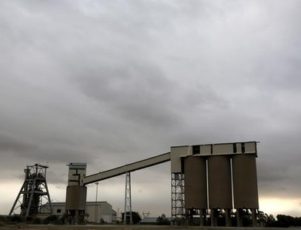While mobile phone penetration has been rapidly increasing throughout Africa for several years, until now, all the smartphones sold on the continent were imported from overseas. However, as AfriOne opens up its first smartphone production factory on the continent, the hope is that the flourishing technology can provide greater employment opportunities for the next generation.
The First in Africa
Mobile phones have become an integral part of life for many people, and the proliferation across Africa has increased rapidly in recent years. In Nigeria, the market penetration has surged and investments in the telecoms sector skyrocketed by 6400% in the past 4 years. With such growth, it is no surprise that Africa’s first smartphone production unit has found its home in Nigeria.
The company AfriOne has established the factory in Nigeria’s Lagos Free Zone with an initial investment of $10 million. The plant will begin producing 120,000 units per month; however the company is confident that the facility will eventually produce as many as 300,000 products per month.
The new range of smartphones will cost between $92 and $108 and are aimed at Nigeria’s middle income consumers. AfriOne’s parent company, Contec Global, intends to open up a second production unit as it continues its expansion.
The investment seeks to capitalize on the huge expansion in e-commerce within the region. E-commerce is predicted to account for 10% of all retail sales in Nigeria by 2025, and consultant group McKinsey estimates it could be producing $75 billion in annual revenue by this time.
The 20,000 square foot production facility includes a Research & Development (R&D) department and testing laboratories. Mr. Sahih Berry, AfriOne’s Founder and CEO, said that the company has a goal to “democratize technology, by offering affordable innovations through our product offerings and removing barriers deterring the large scale adoption of advanced technology in Nigeria.”
By Nigerians, For Nigerians
The unveiling of a facility such as AfriOne’s new smartphone production unit offers immediate job opportunities as well as the obvious increase in options for the Nigerian consumer. AfriOne’s Chief Operating Officer, Mr. Sandeep Natu, told the press that the factory will initially employ around 500 people. Both the company and government officials are hopeful that the long term benefits of the operation will be more far-reaching.
Contec Global’s Managing Director, Mr. Roheen Berry, said that the company is dedicated to increasing opportunities for young Nigerians through a policy of Corporate Social Responsibility.
Mr. Berry explained that the facility will have various training programs for young men and women working at AfriOne, and added, “We are tangibly investing in Nigeria’s future through AfriOne, while providing a valuable skill set to its workforce that will facilitate continued innovation in Nigeria’s emerging, dynamic and robust market.”
The Nigerian government believes that the venture will not only create immediate employment opportunities, but will help foster a culture of innovation and technology within Lagos that could lead to greater long term growth. Lagos State Governor, Akinwumi Ambode, announced the plant’s opening at a press conference in which he expressed hope that this would lead to the city of Lagos create a 24-hour economy.
Mr. Ambode also discussed AfriOne’s commitment to working with a local college, Lagos State Polytechnic, for the maintenance and repair of mobile devices. He said, “The collaboration with Afrione will be of immense benefits to these students and the State.”
The factory promises to offer these students practical experience within the field of telecommunications and mobile technology, thus spreading the potential impact on future job creation far beyond the direct employment within the plant.
Lagos State Government already had a youth training initiative in place, known as the Empowerment Trust Fund, and Mr. Ambode believes that, “AfriOne’s collaboration will complement efforts by the Lagos State government in ensuring that these youths are empowered.”
Nigeria currently has around 154 million mobile phone users, and e-commerce and mobile banking are both rapidly growing sectors within the West African nation. As these markets continue to grow and attract investment, a domestic center for the production of the medium needed to access these fields may seem long overdue. AfriOne assured press that the phones would use cutting edge technology and would come with popular African apps for banking and farming already installed.
AfriOne will be looking to expand its production base quickly, and the local government hopes that further development provides an ongoing boost to economic growth and employment.



